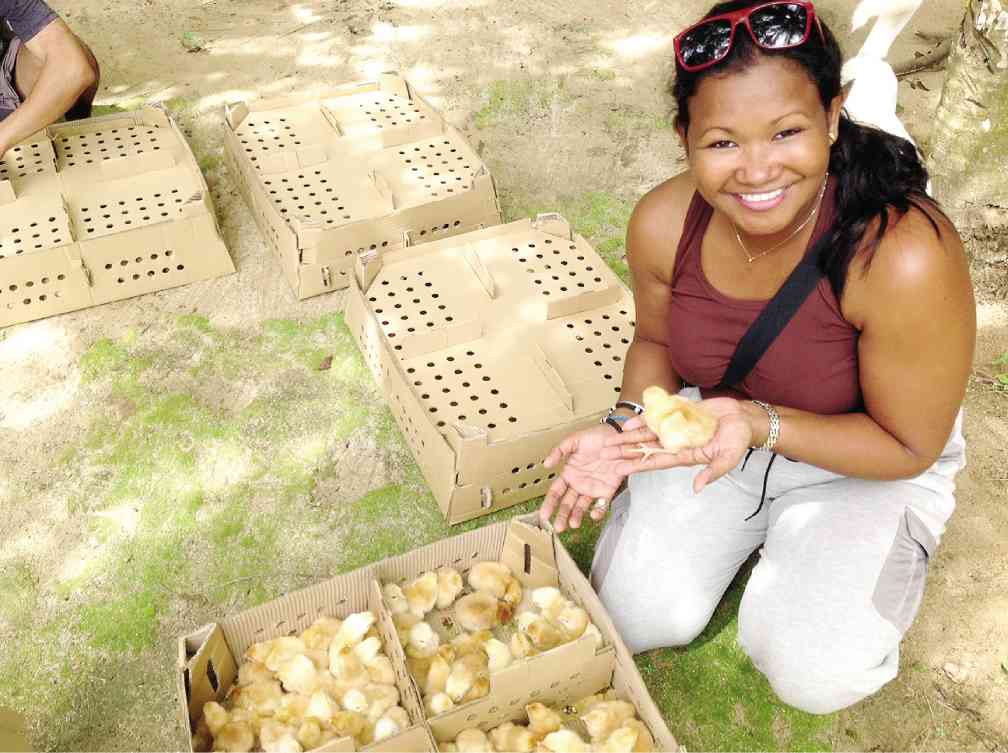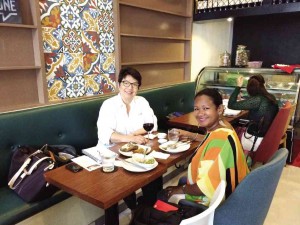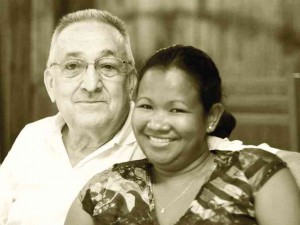Tina the Turner

She must be the second person I have met who is so proud of her color and race that her Facebook name is Tina Turner (instead of her real name) so she says “you won’t forget me” referring to the same name of a popular African-American singer of the ’80s who popularized the R&B song “What’s Love Gotta Do With It.” The other person who is also proud of her color and origins is Tes Mateo, a topnotch networker and catalyst who we always see at the Global Summit of Women. Tes uses her maiden name, she is proud to be a minority in Washington DC and is a proud dark-skinned Filipina.

The similarities end there. Tina Morados is a power-packed entrepreneur who started working at the tender age of 15. After three years of overseas work using her talent in dance, she had saved enough (or so she believed) to buy her and her mother a small parcel of land in their hometown in Abra. She thought that was it for savings. But as fate would have it, the call of the klieg lights came again and she continued her career in dance and met the man who would father her child, Gerard Papillon, a French construction engineer.
Child-bearing, I just found out, is the main worry of dancers. Because of stressful rehearsals and a very hectic schedule of performances, stress on their physical body, many of them have a hard time conceiving when they so decide to do so. Not Tina. She made it a point to take a break, work on her baby project with Gerard and relax in France while infanticipating. And so Gael, their only son, was born 16 years ago, as a healthy baby.
This tells you much about Tina. She plans and she plans well. She planned her savings to buy land, she planned to have a baby while she is still healthy as a mother, and she planned to help her family the best way she can—sending two siblings to school even if she herself never made it to college.

Gerard, while in the Philippines, saw a local ad for a chicken-raising course (the French way) and got intrigued by it and recommended for Tina to enroll. The hardworking new mother started her chicken project in their backyard in Abra. Soon, they had more than 500 heads of 800g to one kilo-size chickens in their yard, and started giving them away to neighbors and friends. Soon after, they had to start thinking of the sustainability side of the business. They were eating chicken day in and day out, and at different stages of weight, age and tenderness to toughness of the meat. As the chickens roamed longer, their flesh would of course be tougher.
They found a way to start a small dressing plant and a few trips to France would teach Tina how to fold the chicken legs and tuck them in, the French way. I told her that some of our free range chickens came out “legs all stretched” in the freezer. She humbly says “that happened to me, too at the start” she says. They checked French labeling for dressed chickens and in true European fashion, these free range chickens are never “bleached” or chlorinated, as the US standard dictates. She calls it “air dry chilling,” never touching chlorinated water. And that is why her chickens are a tad more expensive than the usual finds in the weekend markets.
What is the difference among free range chickens? Free range needs one square meter of space per bird; Organic needs 2 sqm space per bird and Poulet De Bresse, 10 sqm per bird. So, know your chicken. She grows the French kind called Sasso which is an acronym for a breeder in France. But she would like to bring in the breeders herself, soon, so that other small—scale farmers can grow the right bird for today’s culinary needs.

It is not just space that the bird needs. It needs organic care, feeding on herbs and vegetables, and healing colds and virus the natural way, too. No compromises for this French-trained chicken grower. After all, her product was accepted by gourmet specialty stores immediately, even with a price tag that will make you think twice about having a whole bird. The chefs and the market know the product. Her partner Gerard also became the key to the kitchens with European chefs, the stores owned by Europeans, whose standards Pamora Farms complied with, if not exceeded.
Tina never went to business school and she is a testament to my belief that “entrepreneurs are born, not made.” There are others who go to business school, learn what they can and still are not able to start a business nor buy and sustain an existing one.
Today, Pamora Farms, is the standard for locally-grown free range chicken, Completing 60 days to make a one-kilo bird and not the shortcut of 21 to 45 days. I am proud I got to know this lady. She is just in her 30s, but I feel she has lived a lifetime. Street smart and ever on the go, Tina Morados, for me is one story of success today’s kids should emulate.
